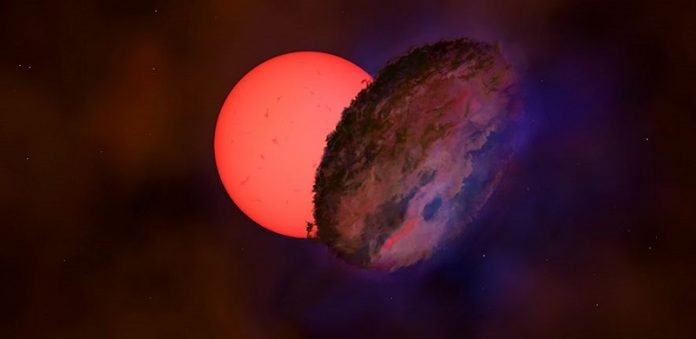
In this week’s edition of new unexplained astronomical phenomena, a team of astronomers led by Dr. Leigh Smith from Cambridge found a star 100 times larger than our sun that nearly disappears from the sky every few decades.
They also have no idea why it does so.
The star, called VVV-WIT-08, is located 25,000 light years away, and decreases in brightness by a factor of 30 rather than disappearing altogether.
It’s not the first star to be discovered with this changing brightness pattern, but evidence is beginning to mount that this might just be another example of a new class of stars.
VVV-WIT-08’s name itself is calling out for an explanation.
The “WIT” in the middle actually stands for “what is this”, which is what astronomers call stars that are difficult to classify into any particular established category.
The team, which included members from the University of Edinburgh, University of Hertfordshire, University of Warsaw, and Universidad Andres Bellow in Chile, found this new variable star by using the VISTA Variables in the Via Lactea survey (VVV), which utilizes the VISTA telescope in Chile.
Its dimming pattern was then confirmed using the Optical Gravitational Lensing Experiment (OGLE), which showed the star dimming in both infrared and visible light.
Astronomers think the most likely cause of this dimming process are opaque disks of dust and gas, or potentially a binary companion or planet transiting in front of the star. But more novel explanations cannot yet be ruled out.
With more stars steadily being added to this new category of “blinking giants”, it’s only a matter of time before more theories abound on what could be causing the dimming.
And there’s still so many more phenomena to find and explanations to explore.
Written by Andy Tomaswick.
Source: Universe Today.



